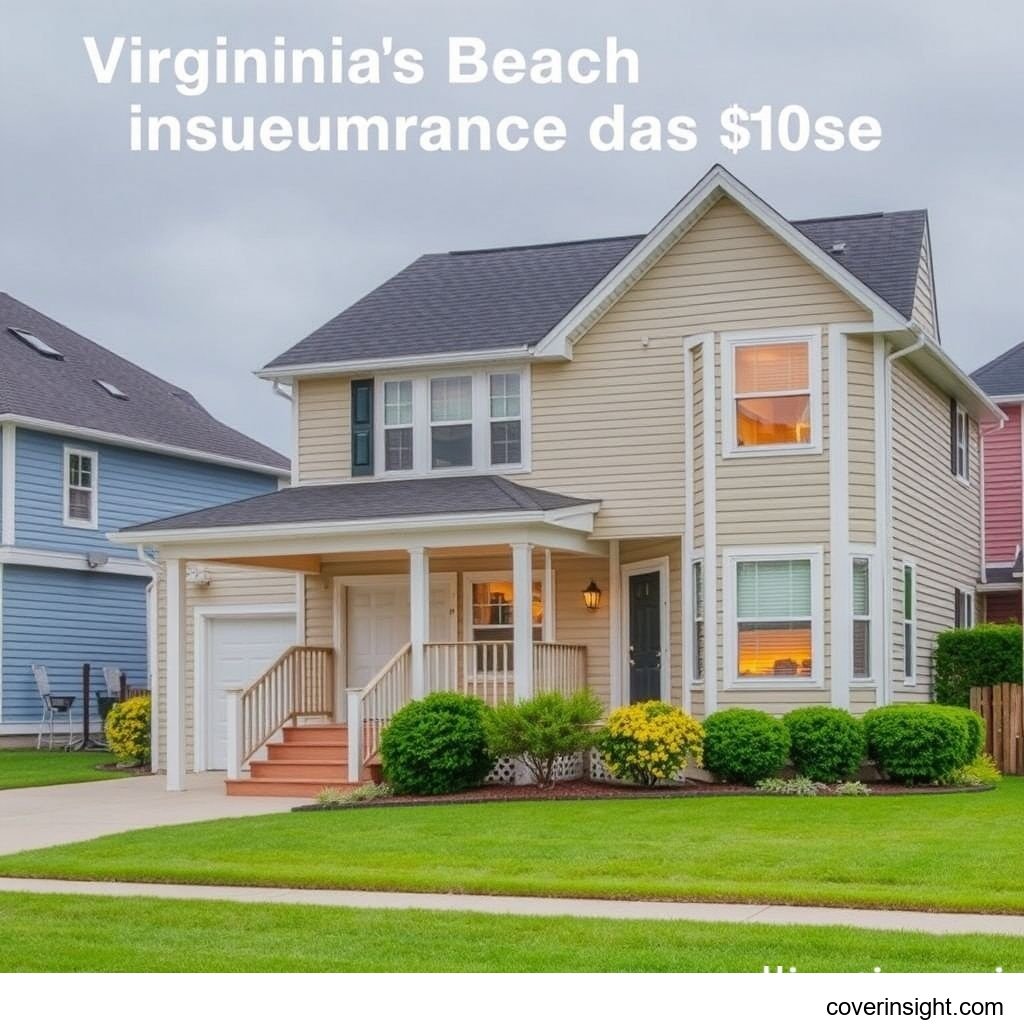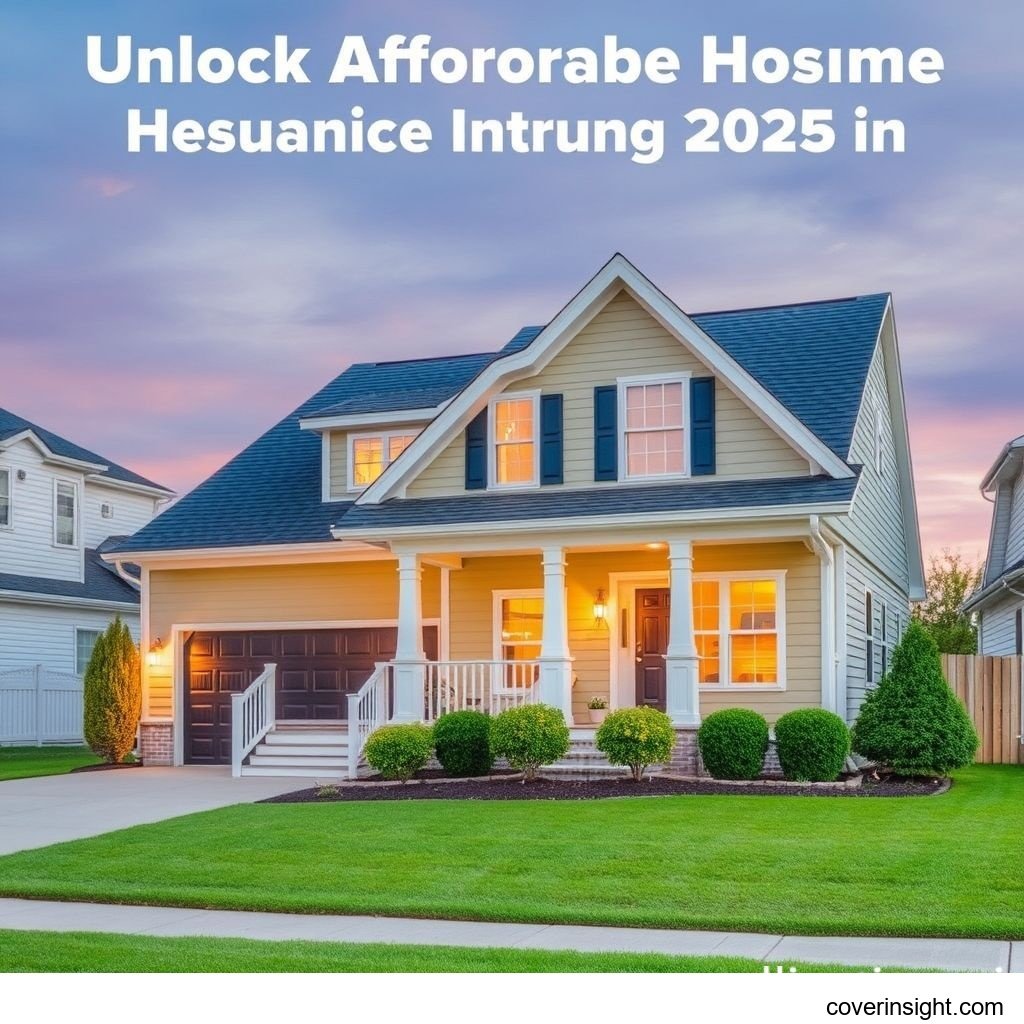Virginia Beach Home Insurance Cost: Smart Savings for 2025
Introduction
As we navigate towards 2025, the landscape of home insurance costs across the U.S. continues to evolve, presenting both challenges and opportunities for homeowners. With rising construction costs, increasing frequency of severe weather events, and inflationary pressures, securing adequate and affordable home insurance is more critical than ever. For those of us living in Virginia Beach, understanding these shifts is paramount to protecting one of our most significant assets: our homes. This guide aims to shed light on what influences your premiums and, more importantly, how to secure smart savings without compromising essential coverage.
Coverage Details
What’s Included
A typical homeowners insurance policy, often referred to as an HO-3 policy, is designed to protect your home and belongings from a wide range of perils. It generally covers:
-
Dwelling Coverage: Protects the physical structure of your home (the house itself, attached garages, etc.) against damage from covered perils like fire, windstorms, hail, and vandalism.
-
Other Structures Coverage: Covers unattached structures on your property, such as sheds, detached garages, and fences.
-
Personal Property Coverage: Safeguards your belongings, including furniture, clothing, electronics, and other valuables, whether they are inside your home or elsewhere in the world.
-
Loss of Use (Additional Living Expenses): If your home becomes uninhabitable due to a covered loss, this coverage helps pay for temporary living expenses like hotel stays and meals.
-
Personal Liability Coverage: Protects you if someone is injured on your property or if you accidentally cause damage to someone else's property, covering legal fees and medical expenses.
-
Medical Payments Coverage: Pays for medical bills for guests injured on your property, regardless of who is at fault.
Common Exclusions
While comprehensive, standard home insurance policies don't cover everything. It’s crucial to be aware of common exclusions, especially in a coastal community like Virginia Beach:
-
Flooding: This is perhaps the most significant exclusion for Virginia Beach homeowners. Damage from rising water, storm surge, or overflow of natural bodies of water is not covered by standard policies. Separate flood insurance, often through the National Flood Insurance Program (NFIP), is required. Given that Virginia Beach is highly susceptible to coastal flooding and hurricane impacts, as highlighted by the Virginia Department of Energy's reports on sea-level rise vulnerability, obtaining a separate flood policy is often a wise, if not mandatory, decision.
-
Earthquakes: Similar to floods, earthquake damage typically requires a separate policy or endorsement.
-
Poor Maintenance: Damage resulting from a lack of proper home maintenance, such as mold or rot from unrepaired leaks, is usually excluded.
-
Sewer Back-up: Water damage from a clogged sewer or drain can also be an exclusion unless you add a specific endorsement.
-
Pest Infestations: Damage from termites, rodents, or other pests is generally not covered.
-
Ordinance or Law: The cost to rebuild or repair your home to meet new building codes after a covered loss may not be fully covered without an endorsement.
Cost Analysis
Price Factors
Several factors play a pivotal role in determining your Virginia Beach home insurance premiums. Understanding these can help you pinpoint areas for potential savings:
-
Location: Living in Virginia Beach, especially closer to the coast, inherently carries a higher risk due to hurricanes and tropical storms. The closer you are to the water, the higher your wind and flood risk, and thus, your premiums. According to data from the Virginia Bureau of Insurance, homeowners insurance premiums in coastal regions like Virginia Beach have seen a steady increase due to increased risk of severe weather events.
-
Home Characteristics: The age of your home, its construction materials (e.g., brick vs. wood frame), roof age and type, and the presence of safety features (smoke detectors, alarm systems) all impact costs. Newer, well-maintained homes with robust construction often receive lower rates.
-
Claim History: A history of previous claims, both by you or previous owners of the property, can significantly drive up premiums.
-
Credit Score: In most states, including Virginia, insurers use a credit-based insurance score as a factor. A higher score often indicates a lower risk, leading to better rates.
-
Deductible: This is the amount you pay out-of-pocket before your insurance kicks in. Choosing a higher deductible will lower your premium.
-
Coverage Amount and Type: The more coverage you opt for, especially for dwelling and personal property, the higher your premium will be.
Saving Tips
Saving on home insurance doesn't mean cutting corners; it means being smart about your choices. Here are some effective strategies for Virginia Beach homeowners:
-
Shop Around: This is perhaps the most impactful tip. Don't settle for the first quote. Get quotes from multiple insurers. Websites like the National Association of Insurance Commissioners (NAIC) provide valuable consumer information and resources to help you compare. For broader financial and insurance literacy, you might also explore various government information portals.
-
Increase Your Deductible: Raising your deductible from, say, $500 to $1,000 or even higher can significantly reduce your annual premium. Just ensure you have the funds readily available should you need to file a claim.
-
Bundle Policies: Many insurers offer discounts if you bundle your home and auto insurance policies with them. It’s often a win-win, saving you money on both fronts. For more general "Insurance Resources Global," it's always wise to look for integrated solutions.
-
Improve Home Security: Installing a centrally monitored alarm system, deadbolt locks, and smoke detectors can earn you discounts. Some insurers even offer breaks for smart home technology.
-
Fortify Your Home: Especially relevant for Virginia Beach, consider making your home more resilient to wind and hail. Upgrading to a hurricane-resistant roof, installing storm shutters, or reinforcing your garage door can lead to substantial discounts. A homeowner in the Lynnhaven area of Virginia Beach, for instance, saw their premium drop by 15% after investing in high-impact windows and a new fortified roof after a brush with a tropical storm.
-
Maintain a Good Credit Score: Regularly check your credit report and work to improve your score, as it impacts insurance rates.
-
Review Your Policy Annually: Life changes, and so should your insurance. Annually review your policy with your agent to ensure your coverage is still appropriate and to ask about new discounts. As someone navigating the complexities of "US Insurance Home" policies, I’ve found that a quick chat with an agent can unearth significant savings or better coverage options you weren't aware of.
-
Ask for Discounts: Don't be shy! Inquire about discounts for being a loyal customer, being retired, having a new home, or being part of certain professional organizations.
-
Consider Flood Insurance Separately: While an added cost, if you're in a high-risk flood zone in Virginia Beach, it’s not just smart; it’s often a requirement by lenders. Ignoring this could leave you financially devastated. You can usually find information on flood zone maps and requirements through the State Insurance Departments or FEMA.
FAQs
How much does home insurance cost?
The cost of home insurance in Virginia Beach varies widely, influenced by the factors mentioned above. While a national average might hover around $1,700-$2,000 annually, Virginia Beach premiums can often be higher, especially closer to the coast, potentially ranging from $2,000 to over $4,000 per year for a standard home, depending heavily on the specific location and home features.
What affects premiums?
Premiums are primarily affected by location (especially proximity to coast), home age and construction, past claims history, chosen deductible, credit score, and the specific coverages and endorsements you select.
Is it mandatory?
Homeowners insurance is not legally mandatory by the state of Virginia. However, if you have a mortgage, your lender will almost certainly require you to carry homeowners insurance to protect their investment in your home. Without it, you would be in violation of your loan agreement.
How to choose?
Choosing the right policy involves balancing cost with comprehensive coverage. Start by assessing your needs (e.g., do you need extra flood coverage? Do you have expensive jewelry that needs an endorsement?). Get multiple quotes, compare coverages line-by-line, check insurer financial ratings and customer service reviews, and don’t hesitate to ask questions.
Consequences of no coverage?
If you forgo homeowners insurance, you are taking on 100% of the financial risk. If your home is damaged by fire, a storm, or if someone is injured on your property, you would be personally responsible for all repair costs, rebuilding expenses, medical bills, and potential legal fees. This could lead to severe financial hardship or even bankruptcy. Additionally, if you have a mortgage, your lender would likely force-place expensive, basic insurance on your property and charge you for it, or even call the loan due.
Author Insight & Experience:
Based on my experience living in coastal Virginia, navigating home insurance in Virginia Beach can feel like walking a tightrope. The beautiful proximity to the ocean comes with the constant background hum of hurricane season worries. I've personally seen how a single storm can wipe out years of savings if you’re not properly insured. It’s not just about getting the cheapest rate; it's about getting the right coverage. Don’t be penny-wise and pound-foolish when it comes to protecting your most valuable asset. Taking the time to understand your policy and asking your agent smart questions about specific risks in our area can save you a world of heartache and a boatload of money down the line.







Comments